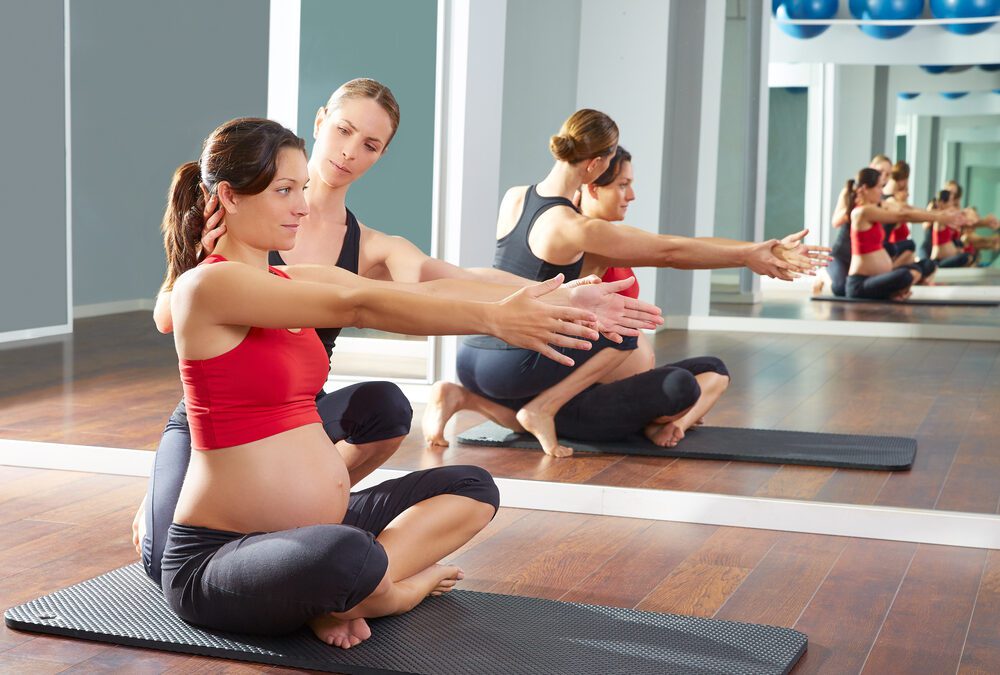

When it comes to getting back into exercises as a new mum, Pilates is a widely recognised and very popular postnatal exercise choice.
Attending a postnatal Pilates program will help new mothers address the postpartum belly and pelvic floor repair, as well as being a wonderful way to boost mental health with calming and relaxation. Pilates is a great form of exercise to help mothers reconnect with her body too and learn ways to relax while coping with all the new changes that come with being a mum. Joining a class with other new mums can also provide essential support and friendship.
In honour of Maternal Mental Health week, our Pilates Tutor Juliet Nicholas has written this guide as to why performing Pilates, even a few times a week, can be a holistic tool for strong physical and mental health. Juliet has also written an expert guide on how to bring your Pilates business online, which you can read here.
Read on to discover the key benefits of Pilates for new and mums-to-be and how you can gain the skills to help mothers in your community as a Pilates Instructor:
Following a natural birth, a new mum can look at starting back to exercise in as little as six weeks with her health professional’s approval. Still, you can start working on your pelvic floor as soon as you like postpartum!
Practising Pilates, even only a few times a week can help strengthen muscles and core, reduce tension, and increase mobility. This is especially good for the following areas:

Attending a postnatal Pilates class can teach you skills to help you relax and enjoy some exercise. Most classes will allow you to bring your baby, so you do not need to find childcare. Some even build in a coffee and chat or maybe a walk with some friends after the class.
You will learn about breathing and the connection between your mind and body. The exercises are performed in a slow, controlled way that requires concentration. Each class will include relaxation and stretch, and even a short session will allow you time to connect to and get to know your own body once again.
Exercise is proven as an effective mood booster and also helps to energise the mind and the body. Just doing some gentle exercises and stretching will help to improve circulation and energise the mind. As the body grows stronger, you will have more energy in addition to seeing improved sleep.
Practising a few simple exercises at home while the baby is asleep can help the mother feel calm and relaxed. Pilates can help with alleviating stiffness and discomfort and help mothers feel more awake and energised. A 15 min plan practised 3 or 4 times a week will produce excellent results. As you see how much more energetic, stronger and calmer you feel, you will be encouraged to continue.

If you are a new mum or mum-to-be, what a great opportunity to build a class with fellow new mums around you! If you are thinking about doing the Pilates qualification, why not add the Pre and Postnatal award to give you additional skills?
This course covers the entire repertoire of Mat Work Pilates exercises. The information delivered covers all the required underpinning theory and teaches the original version exercises plus adaptations and modifications of all 34 exercises to ensure that all ages and abilities can perform this kind of exercise. In addition, you will cover the online theory work and final assessment to gain the Pre and Postnatal qualification.
If you have already qualified as a Level 3 Pilates teacher, you can take an additional course to provide you with the qualifications. The course is 8 – 10 hours online, followed by online lessons. Following on, you will work with an expectant mum to build your case study over four weeks to qualify.

Pilates is a great strengthening tool to help your body bounce back after pregnancy and get you back to feeling like yourself again. A fitness professional needs to consider the client as a whole, whether the focus is on how exercise will boost physical and mental health or give them space and opportunity to form community groups for support.